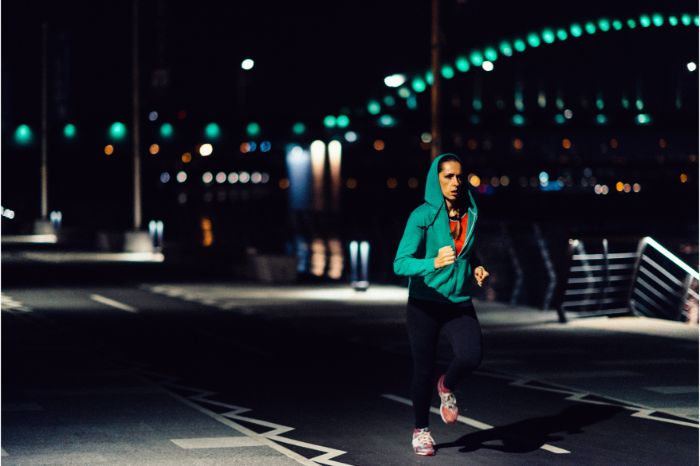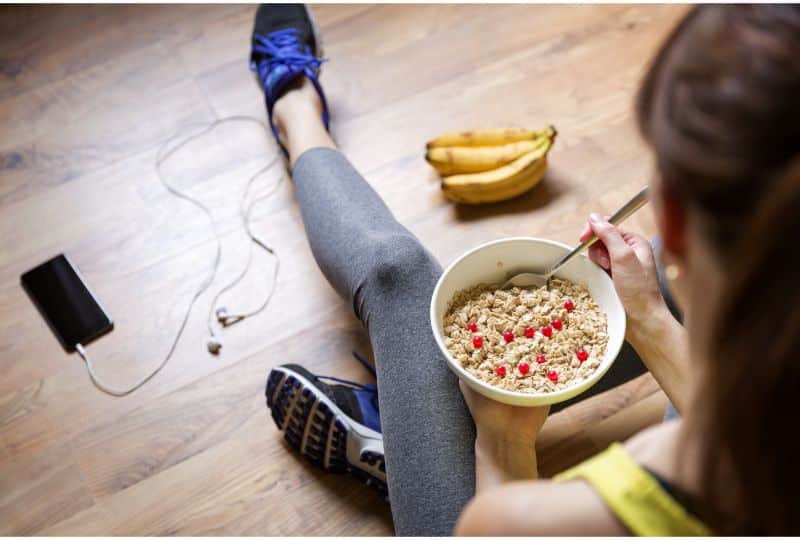When Is The Best Time To Go For A Jog
This page contains affiliate links. As an Amazon Associate I earn from qualifying purchases.
Jogging is among the best things you could ever do to your body. Its advantages vary from shedding weight to reducing heart-related complications and improving learning skills. However, all these advantages hinge upon the time of day you go for the jog. So what is the ideal time for jogging?
The popular jogging hours are early in the morning, late in the afternoon, and evening. However, you reap maximum benefits from your jog if you adhere to your circadian rhythm (CR) or body clock – an all-day rise and fall pattern in your hormone levels, body temperature, reflex, breathing capacity, energy stores, and strength. These factors, primarily the core body temperature, impact your jog.
A human’s core body temperature is at its highest between 5 and 7 pm and begins falling with the onset of sleep. It gets to its lowest at 5 am, with a 0.9 °C difference. The secret is to jog when the core body temperature is elevated.
This is because the condition leads to:
- Boosted blood flow
- More stamina and energy
- Better joint lubrication
- More nutrition and oxygen to muscles
- Reduced injury risk
- Boosted nerve impulse speed
- Better glucose and glycogen breakdown
Should I Jog In The Morning?
Most people do not prefer jogging in the morning due to obvious reasons. However, those that appreciate a good morning jog say it provides them with headspace – their jogging track is free from noise and traffic, and the scorching sun does not usually affect them, making the jog enjoyable. In addition, jogging in the morning grants you the following benefits.
Weight Loss And Eating Less
If you are watching your weight, go for a morning jog without breakfast since your body will begin burning fat in the absence of proteins and carbs required for energy. In addition, morning jogs on empty stomachs boost glucose tolerance and reduce weight gain for those who typically eat high-calorie, high-fat diets.
Builds Muscles
Mornings are ideal for jogging if you wish to build muscles. The muscle growth hormone testosterone peaks between 5:30 and 8:00 in the morning. However, you are required to take a protein-rich breakfast following the jog, failure of which results in you losing muscle mass instead.
Boosts Mood To Conquer Depression
Most patients suffering from depression complain of feeling the worst during morning hours. This is since the cortisol hormone (stress hormone) levels are at their peak during these hours, around 8 am. Jogging can aid with depression since it encourages the release of endorphins, which are mood-lifting hormones. This can exhibit a more significant impact during morning hours, though jogging at other times of day can also conquer depression.
Reduces Blood Pressure
A recent study revealed that morning jogs, between 6 and 8 am, can reduce your systolic blood pressure during the day if you suffer from hypertension. Additionally, it reduced the 24-hour blood pressure for patients with naturally dipping blood pressure at night.
If you suffer from high blood pressure and depression, morning jogs can help. First, however, you will need a nice warm-up to prevent heart-related complications or injuries.
Disadvantages: Heart Problems And Injury
If you are new at waking up early, avoid forcing your body into a morning marathon. Your core body temperature will remain low in the morning, meaning that you have a low power output, rigid muscles, and are more prone to injury. In addition, your oxygen outflow and intake are also low and could affect your ability to breathe.

Late Afternoon And Early Evening Jogs
Science suggests that late evenings are the ideal times for a jog or engaging in any form of exercise. During this time, helpful factors such as hormone levels, core body temperature, reflex, and breathing capacity are all at their optimum. So space your jog and lunch judiciously, for instance by some hours at least.
Go for late afternoon jogs past 4 pm. The body has the peak core temperature, alertness, energy stores, and breathing capacity during the early evening and late afternoon. These are all essential in helping you jog longer and better.
Early evening is also equally good as late afternoon jogging. Your day’s schedule is out of your way and your energy levels are sufficiently good to sprint. In addition, your muscle strength and flexibility are at their peak at this time.
A high core body temperature dilates your blood vessels, ensuring you get more oxygen and a better supply of nutrients to your muscles. In addition, it boosts your nerve impulses speed, meaning your alertness is improved. This consequently increases glucose and glycogen breakdown which releases more energy.
Building Muscles Better That Morning Jogs
An afternoon jog builds muscles better than a morning jog if you train in resistance practice. This is because both cortisol and testosterone levels are elevated in the morning, though the testosterone’s muscle-building effects are countered by cortisol’s muscle-wasting effects at the time.
You Jog Significantly Longer
If training for long-distance jogs, jog in the afternoon. At this time, you will have the peak lung capacity and more fuel to take you on a longer jog than in the morning. In addition, an afternoon jog helps in building your endurance.
Reduced Risk Of Injury
Your heightened core body temperature and energy reserves guarantee that your flexibility and muscle strength are at their optimum in the late afternoon. Additionally, your norepinephrine and epinephrine levels peak at noon. These cause the heart to pump and set you up for a good jog. The hormones reduce pain sensation and improve your mood.
Fixing A Ruined Body Clock
If you travel through time zones or work late-night shifts, your circadian rhythm can be disrupted. As a result, the body clock stops working according to normal day/night patterns, altering the sleep cycle. This increases your chances of being affected by obesity, heart diseases, and diabetes.
Disadvantages: Late Evening Jog Can Interrupt Your Sleep
One shortcoming of evening jogs is that they can perk you up too much, making it hard for you to doze off. In such instances, try to schedule your jog back by an hour—also, shower after jogging to cool the body and prepare it for sleep.
Other hindrances include quickly cooling weather, higher pollution levels, safety concerns, traffic, and vision problems. All of these could be avoided by jogging in the early evening.
Final Thoughts – Which Way To Go?
An evening jog helps reduce your blood pressure at night, and early evening or late afternoon jogs help improve your build and form muscles. We get that the ideal time to jog is early evening or late afternoon from science.



